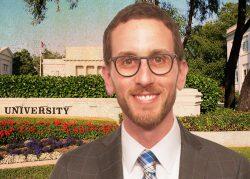State Sen. Scott Wiener has mounted a third charge to make it easy for churches, synagogues, mosques and nonprofit colleges to build affordable homes on their land.
The housing ramrod from San Francisco has teamed up with Assemblywoman Tina McKinnor to introduce Senate Bill 4, which would allow religious institutions to build housing despite zoning that may bar such development, the San Francisco Business Times reported.
The proposal would supersede local zoning rules and bar opponents from employing the state’s environmental review law to slow construction through years of litigation.
Proponents say religious institutions and colleges often have excess land that can and should be used for affordable housing development.
“California has a deep housing shortage, and we need every available tool to create the housing we so desperately need,” Wiener said in a release, adding that religious institutions and colleges have “enormous excess land that can and should be used for affordable housing.”
“Let’s make it easier for these nonprofits to build these critically needed homes,” Wiener (D-San Francisco) said in a statement.
Dubbed the Affordable Housing on Faith Lands Act, SB 4 represents a third attempt to have such a bill passed into law.
The proposed law says residential projects would have to be 100-percent affordable. The housing must remain affordable for 55 years if it’s a rental property and 45 years for properties that can be owned.
To be eligible, proposed projects would also have to align with local standards for affordable housing.
Wiener says religious institutions are a natural partner for nonprofit developers.
Though 100-percent affordable projects can employ SB 35, which grants projects a path toward streamlined approval, rezoning land for residential development can take years, he said. The costly process can also stop a potential housing project.
At a news conference this week, Weiner cited a 2020 study by UC Berkeley’s Terner Center for Housing Innovation that found nearly 40,000 acres now used for religious purposes could be developed.
The bill is Wiener’s third attempt to carve an easier path for faith institutions to build housing and is expected to be among the fiercest legislative battles next year, according to the Los Angeles Times.
A 2020 version of SB 4 died amid disagreement between affordable housing groups that supported it and labor organizations that advocated for a “skilled and trained,” or largely unionized, workforce mandate in the bill.
Unions have long insisted labor requirements help ensure housing contractors provide a livable wage and a qualified workforce, while developers say such rules drive up costs that stymie construction and increase home prices.
The California Conference of Carpenters already signed on as a co-sponsor of SB 4, which includes similar labor language that was used in the 2022 deal to ensure union-scale wages and other benefits.
The proposal is unlikely to get very far, however, without input from the State Building and Construction Trades Council of California, which previewed its opposition in a long letter to the senator.
“We should not have to sacrifice the training and protection of construction workers to provide incentives to developers to build affordable housing,” Andrew Meredith, president of the trades council, wrote.
Last year, Wiener introduced Senate Bill 886 to address a student housing crisis by streamlining approvals for affordable housing on land owned by public universities and colleges. The bill was signed into law this fall.
— Dana Bartholomew
Read more


